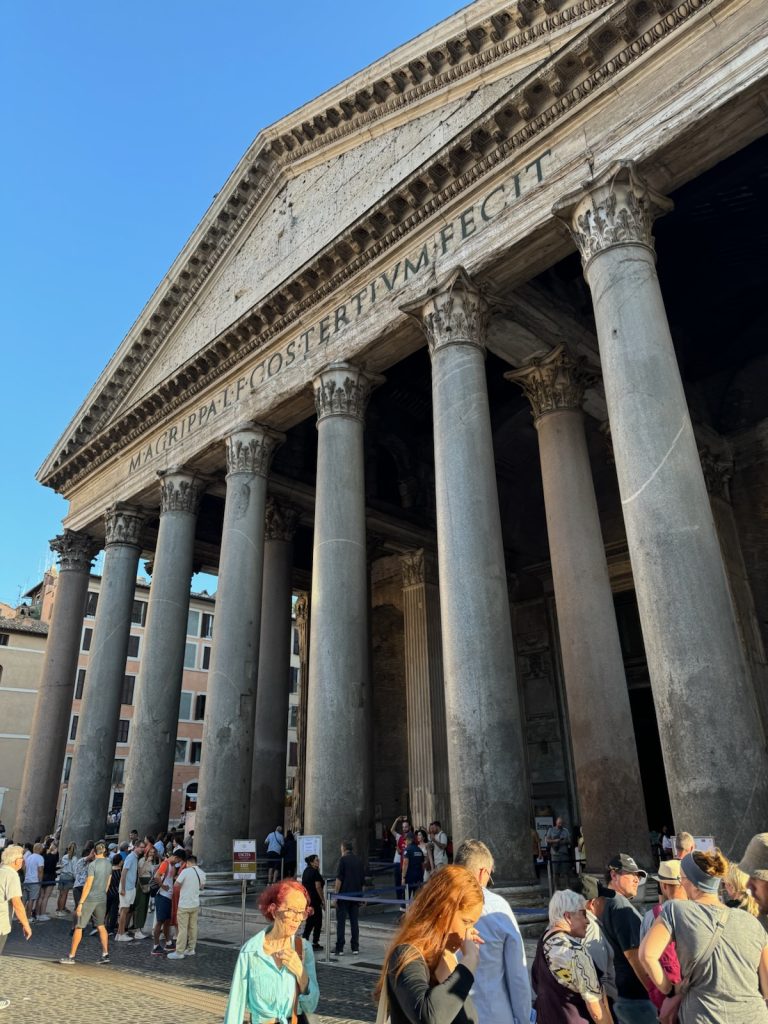What to expect before going on your Study Abroad Trip
What you can expect and how to prepare for your Study Abroad experience in another country.
Every year millions of students take it upon themselves to venture out and choose to study abroad in a foreign country. The University of Washington has had several different programs available to students, depending on the school. Each provides a unique experience for students to learn and explore different cultures and ethnic backgrounds.
Students of UWT can apply to Study Abroad in a program offered by another UW campus, if none of the programs available on their campus suit their interests.
While studying abroad can be a fulfilling and culturally enriching experience, many students are unaware of what it entails while deciding to study in a foreign country. This is some advice based on my current experience as a member of the Rome in Residence program.
- Deciding to make the big move.
It’s an enormous decision to study abroad in a foreign country. Many students don’t consider the full impact that studying abroad can have on you and your entire life. You’re going to be away from your family and friends for a significant amount of time. The support system you have abroad won’t be the same kind that you have in the U.S.
Making sure that you are fully aware of all the difficulties and stresses that studying abroad can have is vital to your preparation because your time difference can be very drastic. In addition, you might not understand the common language of the country you’re in and you’ll be experiencing drastically different worldviews.
Speaking with the study abroad advisors about what to expect will help you gain confidence and power to navigate through a solid plan while abroad. I recommend finding another student who has done a study abroad program previously and asking them about their experience. Everyone is different. Some people can handle more stressful situations than others.
- Budgeting your finances and withdrawing money.
One of the biggest mistakes that students make is not considering the financial impact they will have while studying abroad. Each country has their own currency and set of local prices. When you take out money from an ATM, you will more than likely be charged a transaction fee for using their system. In Rome, ATMS can charge an upwards fee of 30-50 percent on your withdrawals. Most airports can also exchange American currency to foreign currency.
Knowing how and where you will withdraw money from your bank is very crucial while studying abroad. For Rome in Residence students, ATMS from banks are a much better option as opposed to ATMS set randomly on the street. They will have lower transaction fees at an affordable rate. Researching the country you will be studying in and how their banks operate, as well as the currency exchange, is integral to living comfortably. Put together a plan of your finances to spend on housing, food, travel and fun-time before you leave.
- Pack Wisely
As much as you might want to bring your entire life into your suitcase, you will be much more grateful in the end for packing light and strategically. Consider what their weather, location and clothing style is like to blend in. What do the locals wear every day? What is the weather like there? What kind of activities will you be doing every day?
The essential items that you need will be more important than packing a fashionable outfit. More than likely, you will want to bring home lots of gifts, clothes and other cool items you find while living abroad. By packing light, you can leave yourself room to bring items home at the end of your trip, without paying for an extra suitcase or weight on the plane.
- Connect with other students.
For many Study Abroad programs, you will have several opportunities to meet your fellow peers and learn more about one another. Take advantage of these moments and build relationships with the people you’ll be staying with.
Having a friend to rely on while living abroad will help you feel more secure in knowing that you’re not alone in your thoughts and feelings. Joining a forum or social media group of other study abroad students during the experience can also be extremely useful in connecting with your classmates.
- Research the culture.
Taking the time to research the specific region you’ll be staying in can help you immerse yourself more in the cultural environment. Learning basic terms like “hello”, “bathroom”, “where is this place”, can help you immensely in tough moments. What are the social norms of the country you are staying in? Are there any bad social norms that you should be aware of before you visit? Having some basic information about the locals and their customs will help you navigate through your day-to-day life.

Every student’s experience is different and unique to their own. There is a learning curve that every student must get over. Studying abroad in a foreign country can be a challenging, life-altering experience. By doing thorough research before your trip, you will enhance your study abroad experience and have fewer awkward or difficult moments. You will also be able to devote more time to understanding the culture and creating new memories. Remember to stay safe and have fun.
To learn more about the Study Abroad programs, you can visit the UW website for more information: https://www.washington.edu/studyabroad/now-accepting-applications-for/



